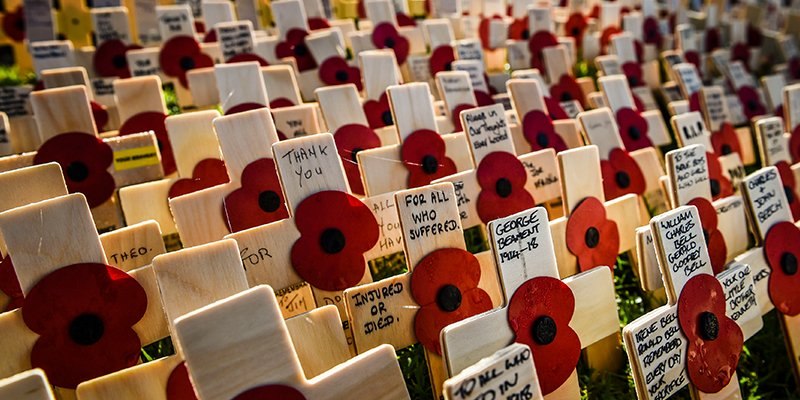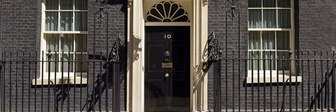British people think another world war is likely to break out in the next 40 years by a margin of more than two to one
It was supposed to be the war to end all wars. But the First World War, the end of which is marked today at 11am, saw six million British men fight and 700,000 die. It so horrified the nations of Europe that they built new institutions and implemented massive disarmament programmes in order to prevent it from ever happening again.
We know of course that this didn’t work, and that the tragedy would be repeated just over two decades later. Fortunately, humanity has not had a major international conflict since the second world war ended in 1945.
However, people are not optimistic that this state of affairs will continue.
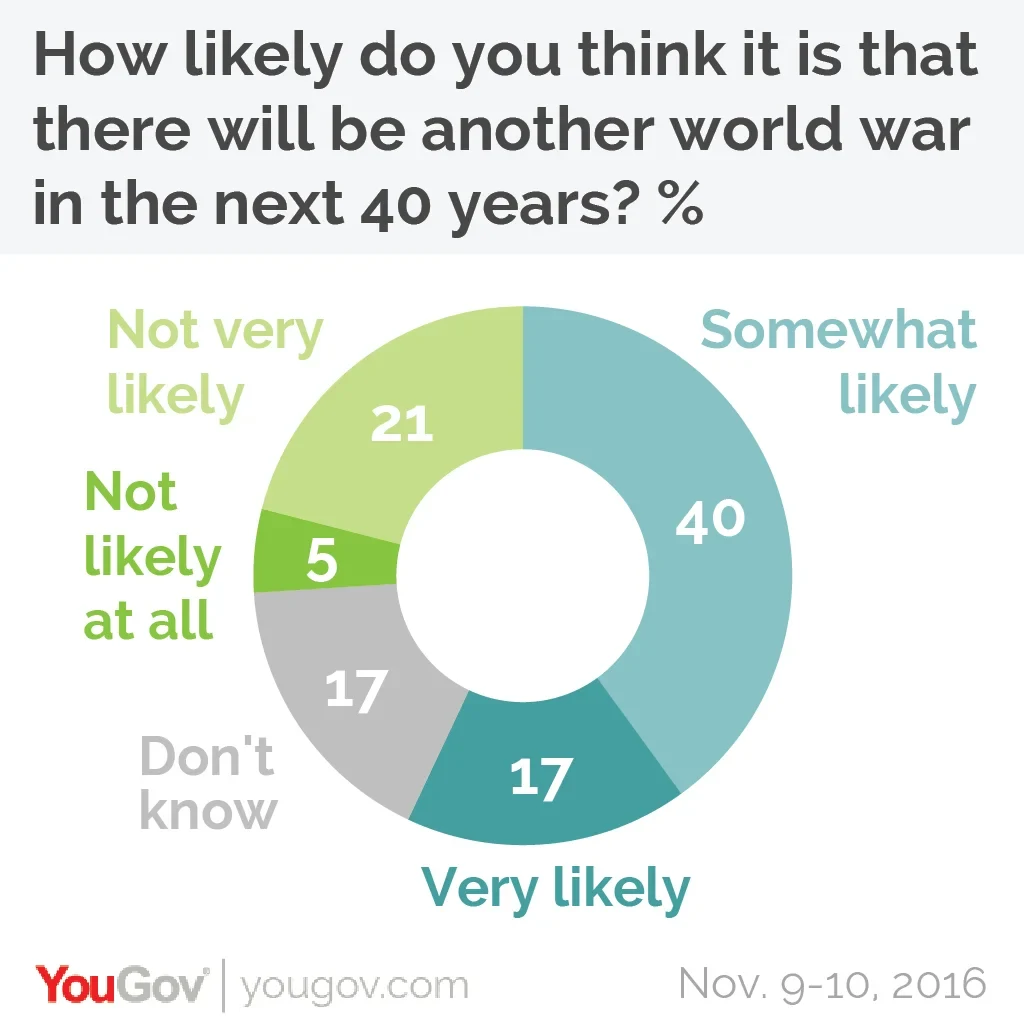
New YouGov research finds that more than half (57%) of British people think that another world war is likely in the next 40 years, including 17% who think it is "very likely". This is more than twice the number of people who think that a war is unlikely (26%), including just 5% that think another world war is not likely at all.
Women aged between 18 and 39 particularly believe another war could happen, with around two thirds (64-68%) thinking it is likely (women in general are six points more likely than men to believe a world war is likely).
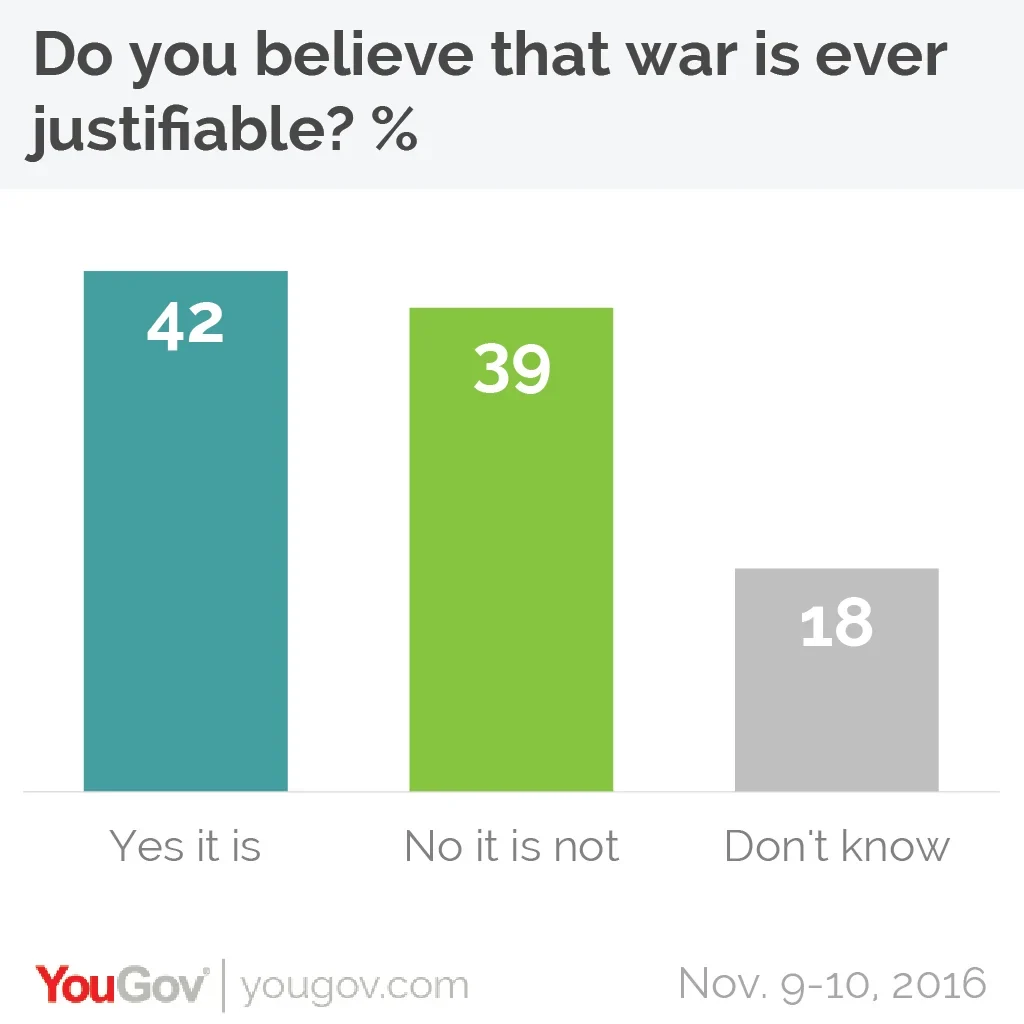
Justifications for war
The British public is almost evenly split on whether war is ever justifiable, with 42% saying that it is and 39% that it is not. Women and working class people are the most strongly anti-war, whilst men, middle class people and 2015 Conservative, Lib Dem and UKIP voters are the most likely to consider war to be justifiable.
On a list of reasons a country might go to war, Brits overwhelmingly support (85%) a military conflict to defend itself against an attack or an invasion, with just 5% saying they would oppose such a war (including 11% of those who said war is never justifiable).
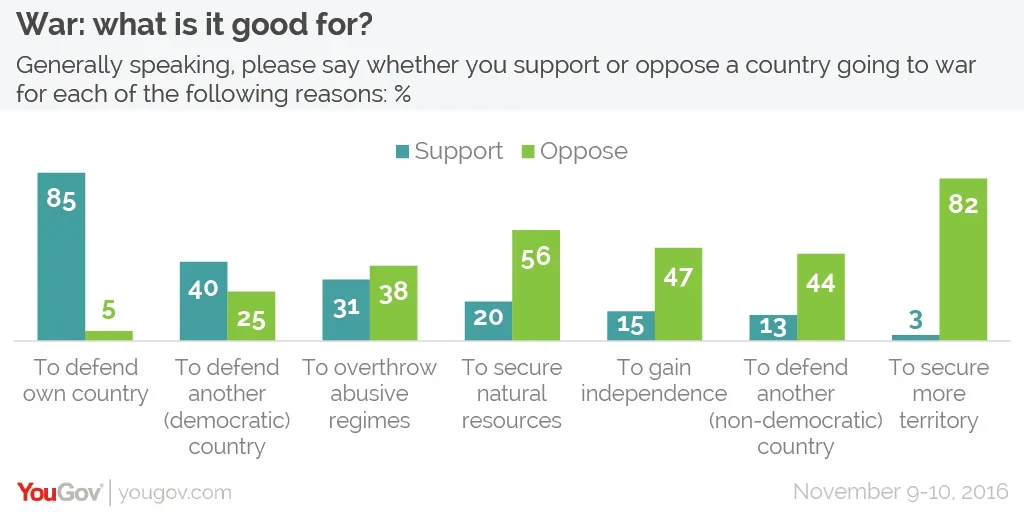
Defending another democracy – the reason Britain and France declared war on Germany in 1914 – was the only other scenario in which more people would support (40%) than oppose (25%) going to war.
Of course, it’s one thing to support a war, but quite another to want to go and fight in one. Upon the outbreak of the First World War, a wave of patriotic fervour saw more than 750,000 British men volunteer for the army in the first three months alone. This represented about 14% of the number of men of military age in Britain at the time. A good deal of these men were eager to join the fray, unaware of the horror this new kind of war would become.
Whilst British attitudes to war were altered forever by the horror of the First World War, such a desire to fight has not disappeared completely. Even today, about 6% of men between the ages of 18 and 39 (roughly comparable to the military age at the beginning of the war) say they would like to fight in a war. Hopefully, for the sake of the world, an opportunity to do so will never come along.
Photo: PA
